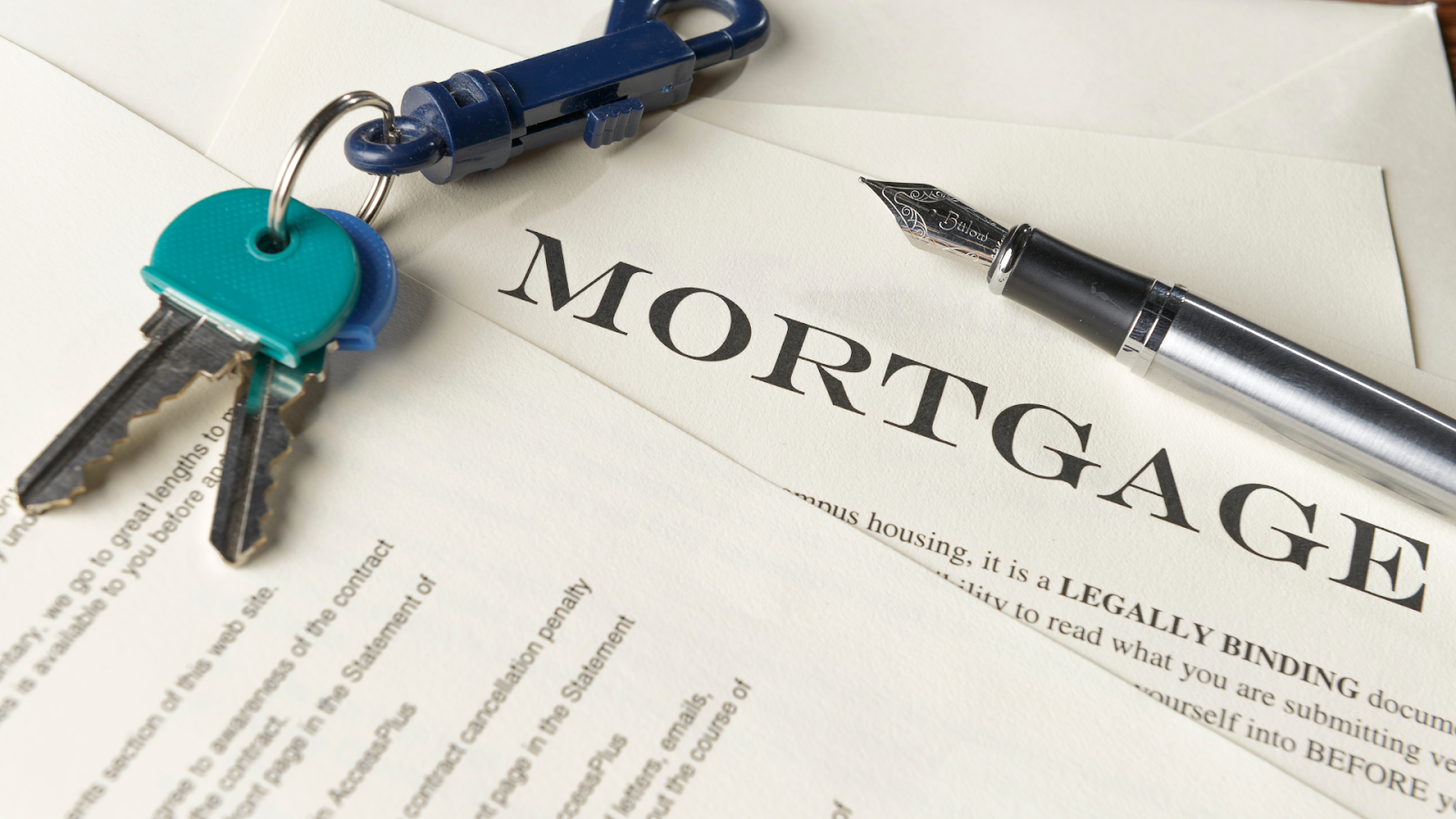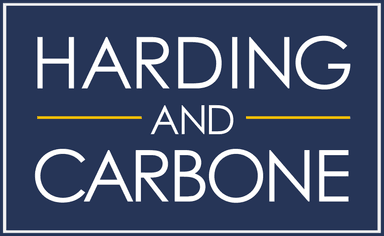Are Property Taxes Part Of Your Mortgage Payment In Texas?
October 10, 2025

Key Takeaways:
- Escrow Accounts: Understand how escrow accounts collect funds for property taxes and affect monthly mortgage payments in Texas.
- Homeowner Action Steps: Learn clear ways to confirm if your lender is handling property taxes and how to spot errors or changes.
- Consultant Support: See how property tax consultants in Texas can reduce your bill through exemptions, protests, and assessment reviews.
Owning a home in Texas comes with a variety of financial responsibilities, and property taxes are one of the biggest factors to plan for each year. Many homeowners wonder how these taxes fit into their monthly mortgage payment and what role escrow accounts play in managing them. Understanding this connection helps prevent confusion, avoids unexpected bills, and allows for smarter financial planning.
Harding & Carbone has been a trusted name in Texas property tax consulting for decades, representing thousands of homeowners and businesses across the state. Our firm has a proven track record of reducing property tax burdens through protests, exemption assistance, and careful review of assessments. With experienced consultants and an unmatched understanding of Texas appraisal districts, Harding & Carbone continues to set the standard for effective property tax representation.
Steps To Confirm If Your Loan Servicer Is Collecting Property Taxes
Understanding if your property taxes are included in your mortgage payments is crucial for keeping your budget on track and avoiding missed deadlines. Many homeowners assume their lender handles the tax bill automatically, but mistakes or oversights can happen. To be certain about your situation, take these steps:
Review Your Monthly Mortgage Statement
Your mortgage statement often provides the first clue. Look for a section that breaks down your payment into principal, interest, and escrow. If “escrow” or “taxes and insurance” is listed, it means your loan servicer is setting aside money each month to cover your property taxes.
Check Your Annual Escrow Analysis
Each year, lenders prepare an escrow analysis to show how much was collected and paid out for property taxes. This document will also note if there is a shortage or surplus in your account. Reading it carefully allows you to see how your property’s value and tax rates are influencing your monthly payment.
Contact Your Loan Servicer Directly
If you are still uncertain, reaching out to your mortgage company is the fastest way to get confirmation. A simple call or secure online message asking, “Do you pay my property taxes directly from my mortgage payment?” will provide clarity. Having written proof or confirmation can also be helpful for your records.

Verify County Appraisal District Records
Most county appraisal districts in Texas provide online access to tax payment histories. Searching by your property address allows you to see whether the latest tax bill was paid and who submitted the payment. If your loan servicer handled it, their name should appear as the payer.
Review Annual Tax Statements
Every fall, Texas homeowners receive a property tax statement. Even if your lender pays through escrow, you may still receive a copy for your records. Check this document to confirm that payment has been assigned to your lender and that your account is in good standing.
Professional Guidance When Errors Or Increases Appear
For homeowners who discover unexpected increases or errors during this process, professional help can make a significant difference. At Harding & Carbone, our property tax consultants in Texas review assessments and payments in detail to uncover opportunities for savings. To learn more about how our team can help you stay ahead of your tax obligations, visit Harding & Carbone or reach out through our contact page.
Pros And Cons Of Rolling Taxes Into Monthly Mortgage Payments
Including property taxes in your monthly mortgage payment is a common setup in Texas. While this arrangement simplifies the process for many homeowners, it also comes with some tradeoffs. To better understand how it affects your financial planning, here are the advantages and disadvantages explained in detail:

The Advantages Of Escrowed Property Taxes
One of the biggest benefits is easier budgeting. By spreading the cost of property taxes across twelve months, homeowners avoid scrambling to gather a large amount at the end of the year. Escrow also removes the stress of deadlines because the servicer pays the tax office directly. Many homeowners also find peace of mind in knowing that tax bills are handled on time, reducing the risk of penalties or liens.
The Drawbacks Of Escrowed Property Taxes
While escrow offers convenience, it limits control over your money. Funds collected for property taxes sit in the account managed by the lender, which means homeowners cannot use that money elsewhere until the bill is paid. In some cases, mortgage servicers may miscalculate future taxes, leading to an escrow shortage that requires an additional lump sum payment or a higher monthly mortgage bill. Overestimations can also result in surpluses, which are eventually refunded but still keep your money tied up.
Guidance From Property Tax Experts
At Harding & Carbone, we work with clients to identify ways to reduce property tax burdens and provide insight into how escrow accounts affect overall costs. Our property tax consultants in Texas can help you review assessments, exemptions, and billing details to make sure your payments align with your actual obligations. To learn more about strategies for managing your taxes, visit Harding & Carbone or connect with a specialist through our contact page.

Correcting An Escrow Shortage Or Surplus On Your Statement
Discovering that your escrow account has a shortage or surplus can be confusing, but understanding why it happened and how to address it will help you keep your mortgage payments stable. Both situations are common for Texas homeowners because property values and tax rates often change. Here are the steps to take if you find yourself in either situation:
Reviewing Your Escrow Analysis
Start by carefully going through your escrow analysis statement. This document outlines how much your lender collected for property taxes and insurance, how much was paid out, and whether the account is short or has excess funds. Comparing these figures with the official bill from your county appraisal district will show if the calculations are correct.
Understanding A Shortage Vs. A Surplus
A shortage usually occurs when property taxes rise or exemptions have not been applied, and your lender did not collect enough to cover the full bill. A surplus happens when the opposite is true, such as when exemptions lower your tax bill or after a successful property tax protest. Knowing which situation applies will guide your next steps.
Options For Handling A Shortage
If your account has a shortage, lenders typically offer two choices. You can make a one-time payment to cover the balance or spread the difference across the following year’s mortgage payments. Choosing between these options depends on whether you prefer to address the shortage immediately or gradually.
Options For Handling A Surplus
In the case of a surplus, your lender will usually issue a refund or apply the excess funds to your future mortgage payments. This can help reduce upcoming costs, but it is also a signal that your account may have been overfunded. Checking for changes in exemptions or tax adjustments can prevent repeated overpayments.
Professional Help With Escrow Adjustments
At Harding & Carbone, our property tax consultants in Texas can help you identify why a shortage or surplus appeared and determine if your tax bill is accurate. We review exemption statuses, appraisal district records, and payment histories to uncover potential errors. For direct support, visit Harding & Carbone or connect with our team through the contact page to make sure your escrow account reflects the right amount.
Final Thoughts
Property taxes and mortgages often go hand in hand in Texas, and understanding how they connect is key to avoiding surprises. When taxes are included in your mortgage, the lender handles payments through escrow, but when they are not, the responsibility falls directly on the homeowner. Staying informed about which system applies to you and reviewing your statements regularly will help prevent costly mistakes.
Harding & Carbone works with homeowners across Texas to make property tax management less overwhelming. Our property tax consultants in Texas review assessments, exemptions, and escrow accounts to find potential savings and resolve issues quickly. For more information, visit Harding & Carbone or contact us directly through our contact page.
Read Also:
- How To Manage Property Taxes In Harris County
- Fort Bend County Taxes: Essential Facts And Payment Steps
- Property Tax Advice For Montgomery County Homeowners
Frequently Asked Questions About Property Taxes And Mortgages In Texas
Do property tax consultants in Texas only help with protests?
No. Consultants also review tax bills for accuracy, check exemption statuses, and advise homeowners on ways to reduce future escrow contributions.
Can hiring a property tax consultant lower my monthly mortgage payment?
Yes, if the consultant helps reduce your taxable value or secures exemptions, the lender will adjust your escrow, which may lower your monthly payment.
Is it possible to switch from paying property taxes through escrow to paying them directly?
In some cases, yes. Lenders may allow this once a homeowner has enough equity or a strong payment history, but it depends on loan terms and lender policies.
Do property tax consultants in Texas charge upfront fees?
Most reputable firms, including Harding & Carbone, structure fees based on performance, meaning they are tied to the savings achieved for the homeowner.
Can consulting services help with property taxes on commercial properties?
Absolutely. Property tax consultants in Texas assist with both residential and commercial accounts, ensuring businesses also pay a fair assessed value.
Will appealing my property value affect my mortgage escrow immediately?
Not always. Escrow accounts typically adjust after the lender receives updated tax information, which can take time depending on when the protest is resolved.
Can property tax consultants help seniors lower their tax burden?
Yes. Seniors may qualify for additional exemptions, and consultants can assist with applying for these benefits to lower their annual tax obligations.
What if my mortgage servicer refuses to update escrow after an exemption is applied?
Homeowners can provide official exemption documents from the county appraisal district. If problems continue, a consultant can help communicate with the servicer.
Do property tax consultants provide services across all Texas counties?
Yes. Firms like Harding & Carbone serve clients across the state, reviewing assessments and providing representation before local appraisal districts.
How early should I contact a consultant before tax bills are issued?
It is best to begin in the spring or early summer, since appraisal districts finalize values ahead of fall tax bills. This timing gives consultants room to act.
